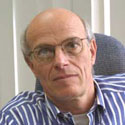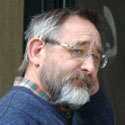Academic Editors
The following people constitute the Editorial Board of Academic Editors for PeerJ. These active academics are the Editors who seek peer reviewers, evaluate their responses, and make editorial decisions on each submission to the journal. Learn more about becoming an Editor.

Silvia Cimino
Prof. Silvia Cimino, PhD in Clinical and Developmental Psychology, completed a post-doctorate at “Sapienza” and is currently an Associate Professor in Clinical Psychology, within the Department of Dynamic and Clinical Psychology, Faculty of Medicine and Psychology at the “Sapienza “University of Rome.
She is a Child Psychotherapist of the AIPPI (Italian Association of Psychoanalytic Psychotherapy of Childhood, Adolescence and the Family) and has worked as a clinician and researcher at the “Bambino Gesù” Pediatric Hospital for over 10 years.
She is the author of over 60 national and international publications (including articles, volumes, chapters in books), mainly focused on psychopathology in the first three years of life (eating, sleep, depressive disorders), psychopathological risk in adolescence (with particular reference to the impact of traumatic experiences ). She has also explored the area of parenting and maternal depression.

Olivier Civelli
Chair and Professor, Pharmacology and Eric L. and Lila D. Nelson Chair in Neuropharmacology, School of Medicine, University of California, Irvine.

Michael Clague
Post-doctoral work at NIH (virus fusion mechanisms) and EMBL to study cell biology (membrane trafficking). Moved to a faculty position at University of Liverpool. Early work focused on the role of phosphoinositide metabolism along the endocytic pathway then later the role of reversible ubiquitylation in endosomal sorting. This has lead to a broader interest in ubiquitin biology and the deubiquitylase family as potential drug targets.

Michele Clamp
Graduated from Oxford University in physics and proceeded to a physics PhD at Manchester University. Saw the light and came over to biology through protein structure prediction into genome annotation. Founded the Ensembl database alongside Ewan Birney and Tim Hubbard at the Sanger Institute. Crossed the pond to the Broad Institute where many mammals were sequenced and the human gene count trimmed of its fat. Had a short enjoyable interlude in the commercial sphere at Bioteam and is now residing at Harvard University with fingers in many pies.

Julia A. Clarke
Julia Clarke is a paleontologist and evolutionary biologist at The University of Texas at Austin. She is also a John A. Wilson Centennial Fellow in Vertebrate Paleontology and a member of the Graduate Faculty in Ecology, Evolution, and Behavior at UT.
She has a Ph.D. from the Department of Geology and Geophysics at Yale University and a B.A. (comparative literature and geobiology) from Brown University. She currently serves as co-editor-in-chief of the Journal of Anatomy and is an associate editor of Paleobiology. She has published numerous technical papers, including 9 in Nature or Science, and has been recognized for excellence in research, undergraduate teaching, and outreach.

Anne-Kathrin Classen
Emmy Noether research group leader, Albert-Ludwigs-Universität Freiburg, Germany
Emmy Noether research group leader, Ludwig Maximilians University, Munich, Germany
Postdoc, Department of Molecular and Cell Biology, UC Berkeley, USA
PhD in Biology, Max Planck Institute of Molecular Cell Biology and Genetics Dresden, Germany
Christine E. Clayton
Professor of Microbiology at the University of Heidelberg. Member of the editorial boards of several journals, past or present membership of scientific advisory committees for WHO and public-private partnerships in tropical diseases.

Mike Climstein
Mike Climstein (PhD, FASMF, FACSM, FESSA, AEP) is an Associate Professor who holds clinical and research appointments. He is currently Course Coordinator of the Master of Clinical Exercise Physiology program at Southern Cross University; Adjunct Assoc. Professor in the Physical Activity, Lifestyle, Ageing and Wellbeing Faculty Research Group, University of Sydney and Director of Aquatic Based Research at Southern Cross University.
Mike has 165 papers, 12 book chapters and 38 grants (internal and external funding) totaling in excess of $7.8m (AUD). His academic and clinical accomplishments have been peer-recognized having received Fellowship by Sports Medicine Australia (FASMF), American College of Sports Medicine (FACSM) and Exercise and Sports Science Australia (FAAESS). Additionally, Mike has received a number of awards for his research efforts. He is an Academic Editor for PeerJ and reviewer for a number of exercise/sports science and sports medicine journals.
Mike’s research involves clinical exercise physiology/sports science, masters athletes, deleterious effects of aging and chronic conditions on bone health/segmental body composition. He is currently supervising PhD students in the areas of skin cancer, cardiac rehabilitation, world masters games athletes, surfing (bone health and exostoses) and biometric/smart clothing in clinical monitoring.

Jean Clobert
Senior Researcher (DR hc, CNRS), Station de Ecologie Experimentale du CNRS à Moulis. Member of the Acamedia Europaea.
After having developed statistical methods for the study of population dynamics in nature, my research focus has shifted since 15 years towards the study of three main topic :
* The study of dispersal evolution (causes, mechanisms and consequences). The approaches which have been developed are demographic, physiological, behavioural and genetic. Three model systems have been chosen to study the genetic and plastic responses of dispersal to variations in the environment, two lizards species, the common lizard (Lacerta vivipara, coll M. Massot) and the side blotched lizard (Uta stansburiana.coll B. Sinervo), and a ciliate (Tetrahymena thermophila).
* The study of trade offs and phenotypic plasticity. I have been interested by the link between predation/parasitism and clutch size or/other traits evolution. I alm also interested by the evolution, control and organisation of trade-offs, in particular with respect to phenotypic plasticity.
* Population structure and extinction rate. We examine the role of the different sources of heterogeneity (demographic environmental) and in particular internal (mating system, polymorphism, type of competition) in population viability.

C Robert Cloninger
Director, Anthropedia Institute for Well-being Research; Professor Emeritus of Psychiatry at Washington University in St. Louis.

Paulo Jorge Coelho
Paulo Coelho graduated in Electrical Engineering in 2004 from Coimbra University, obtained his Specialization Course in Automation and Control in 2007 by Coimbra University, and a Ph.D. in Informatics in 2019 by Trás-Os-Montes and Alto Douro University.
He is an Adjunct Professor at the Electrical Engineering Department at the School of Technology and Management of the Polytechnic University of Leiria, where he has mainly lectured Curricular Units in the areas of Microprocessors, Industrial Automation and Computer Vision, since 2004.
Paulo Coelho is currently a former course director and former member of the Scientific-Pedagogical Committee for the Master's in Electrical and Electronic Engineering at Polytechnic of Leiria. He is currently an integrated researcher at ROBiTECH (Advanced Robotics and Smart Factories) group, in the INESC Coimbra (delegation in Leiria). He is also a member of the Portuguese Engineers Order and the Portuguese Association for Pattern Recognition.
His research interests are focused on industrial automation, computer vision-based applications, biomedical imaging analysis, ambient assisted living solutions, assistive technologies for reducing impairments, and the application of machine learning and deep learning in these research areas. He has authored more than 45 publications in refereed journals, book chapters, and conferences.

Claudia Colesie
I obtained my Diploma in 2009 in the group of Prof. Burkhard Büdel, at the University of Kaiserslautern. For my doctoral work, I joined an international collaboration within a New Zealand research project under the leadership of Prof. T.G. Allan Green and Prof. Craig Cary; NZTabs; both at University of Waikato. After finishing my PhD thesis I continued working in the group of Burkhard Büdel as a lecturer with the opportunity to additionally join a trans-European BioDiversa project.
As a direct consequence from these experiences I learned that tundra ecosystems, where low temperatures and short growing seasons limit tree growth but water availability is high, are highly productive soil crusts habitats. I, therefore, collaborated in the POLARCRUST project that focused on biological soil crusts from the Antarctic Peninsula and Arctic Svalbard coordinated by Ulf Karsten, University of Rostock, Germany. In addition, I started my project as an Alexander-von Humboldt research fellow within the group of Prof. Vaughan Hurry at the Swedish University of Agricultural Sciences in Umeå. Additionally, I am currently involved in a research Project (CRYPTOCOVER), with Prof. Leopoldo Sancho (Universidad Complutense Madrid, Spain.I will start working as a lecturer for plant physiological ecology at the University of Edinburgh with the School of Geosciences in the Climate change Institute from January 2019.

